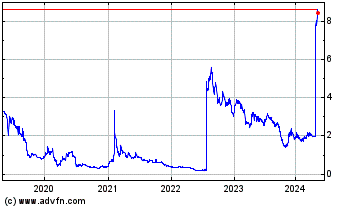Aeterna Zentaris (NASDAQ:AEZS)
Historical Stock Chart
From May 2019 to May 2024


